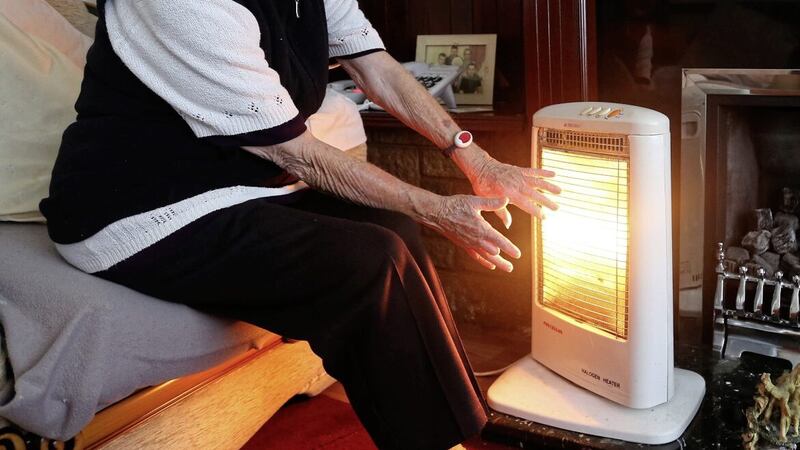The coming winter fuel crisis is a challenge on the scale of the Covid pandemic and Stormont should be preparing for it with a similar degree of urgency.
The DUP’s half-walkout is no excuse for near-total inaction.
Even in the present caretaker mode, ministers remain in post and a forum of party leaders is supposed to meet monthly to hammer out differences and keep government ticking over. Although controversial or complex decisions cannot be taken by individual ministers, most such decisions could be waved through if every executive party gave the nod.
The whole point of caretaker mode, according to the DUP, is to create a political crisis without depriving Northern Ireland of governance. The party has proclaimed this since withdrawing its first minister at the beginning of February and has specifically linked it to the cost of living crisis since Russia invaded Ukraine three weeks later.
There was a frantic month between Paul Givan’s resignation and Stormont rising for May’s election, during which the caretaker executive and assembly found creative ways to rush through policies and legislation, some of it covering issues that had been deadlocked for years. The DUP was careful to protect a £200 energy support payment for households on benefits, arranged and funded by Stormont largely as a response to the pandemic.
The need for another spell of frantic activity could hardly be clearer and much could be done within the confines of the DUP’s protocol huff. So where is it?
Perhaps the scale of the problem is not clear to the DUP, or it simply does not know how to respond, or both. A small illustration feels emblematic.
Over the past two weeks, every household on means tested benefits has received a £326 cost of living payment, arranged and funded directly by the UK government.
This has arrived just in time for most households with children in Northern Ireland to spend it all on school uniforms: at average costs, one secondary or two primary uniforms would swallow the entire sum, even allowing for uniform grants.
Responding to widespread concern at rising uniform costs, DUP education minister Michelle McIlveen raised the uniform grant by £10 per pupil at the end of June. This pathetic fiddling around the edges was hailed by her party as an example of caretaker devolution protecting the public while continuing to send a strong message against the protocol.
What the minister should have done is issued guidance that normal uniform practice is suspended for the academic year, with only basic items from any retailer required.
Although there is no law to give guidance on uniforms statutory force, a minister can still penalise schools for ignoring her - and in this case, how many would dare?
Parallels with the pandemic should have been drawn: if lessons can be put online for a year it is certainly proportionate for low-income families to be kept fed and warm instead of having to buy badged blazers and branded PE kits, not least because those items are against guidelines already.
If the DUP cannot grasp the magnitude of what lies ahead, it is hardly alone. Councils across Britain have spent months planning ‘warmth centres’ in public buildings, for people who cannot heat their homes as well as for the homeless.
Differences in how public services are devolved in Northern Ireland mean this is more of a job for Stormont, yet there is no sign of any preparation.
Ministers and officials in London have examined options to ration electricity and gas. In March, rationing plans in the Republic were leaked. There are no reports of Stormont doing anything comparable, despite our separate energy systems and their dependence on Britain and the Republic. In March, the Department for the Economy - also controlled by the DUP - said the question had not even been discussed.
To an extraordinary extent, Northern Ireland’s fate now depends on the weather. There was a run of cold winters a decade ago when sub-zero temperatures lasted for weeks. If this recurs without emergency measures in place, the consequences will be horrendous.
The caretaker period expires at the end of October, when winter usually arrives. An election is then meant to be called, although the government would prefer to avoid it with a deadline extension or a short period of direct rule.
However, if all this happens as a fuel crisis comes to a head, indulging the DUP any further will be unsustainable. It is the type of event that could upend the political landscape.









